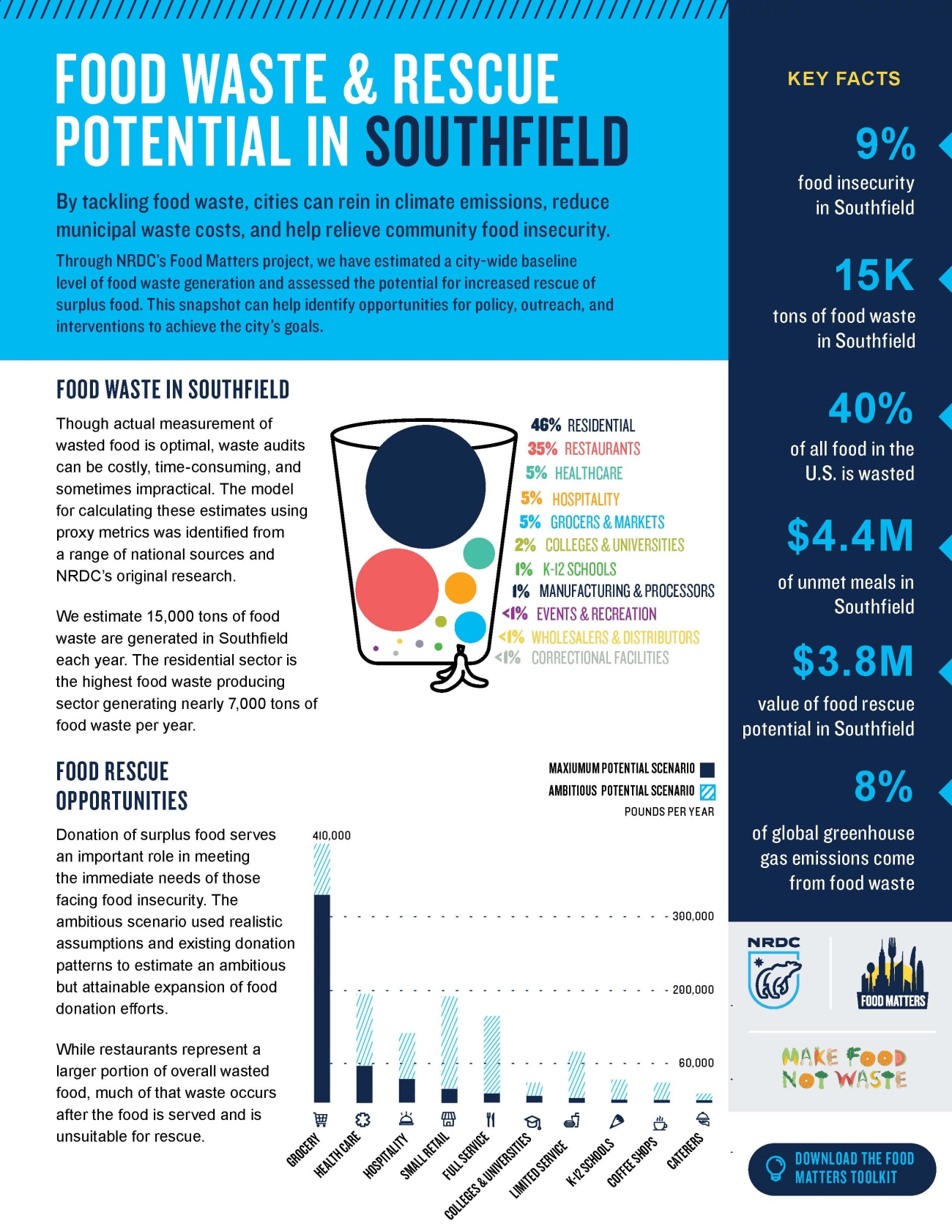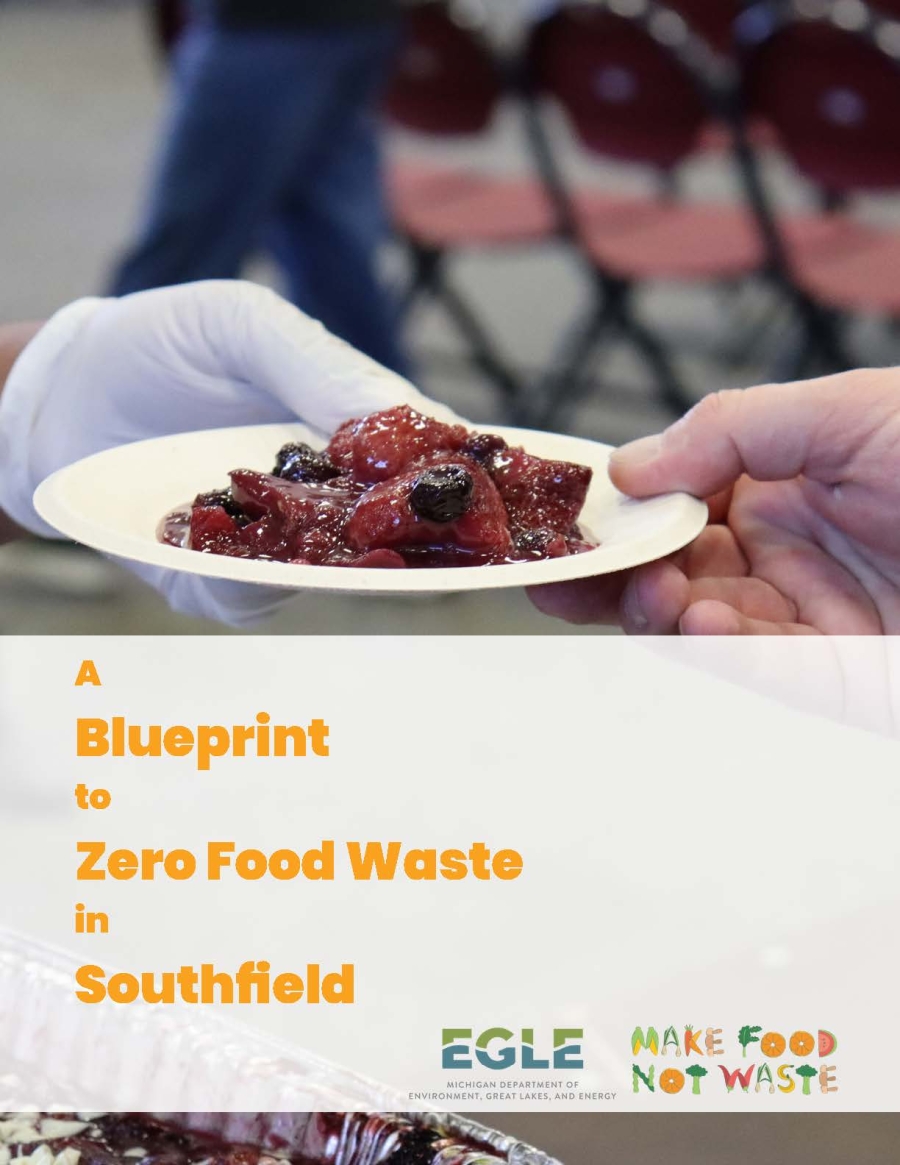The City of Southfield is the first municipality in the nation to adopt a plan dedicated to the elimination of food waste as a method to reduce greenhouse gas emissions and ultimately reduce the impacts of climate change. A Blueprint to Zero Food Waste in Southfield is a well-researched, comprehensive, and strategic document that outlines how local government and numerous partnership organizations can work together to promote food waste prevention, reduction, and elimination techniques while helping food insecure communities.
A Snapshot of Food Waste and Rescue Potential in Southfield
According to the Natural Resource Defense Council (NRDC), a staggering 15,000 tons of food waste is estimated to be generated in the City of Southfield each year. The largest producer of food waste occurs in residential homes, at 46%, which equates to about 7,000 tons annually. Ironically, 9% of Southfield’s population is food insecure. On a national level, nearly 40% of all food is wasted in the United States which contribute to 8% of global greenhouse gas emissions.
To completely eliminate food waste in Southfield would mean having the potential to rescue $3.8 million worth of food and feeding food insecure households with $4.4 million worth of unmet meals.
A Blueprint to Zero Food Waste in Southfield
The State of Michigan's MI Healthy Climate Plan sets the goal of reducing food waste in half by 2030. A Blueprint to Zero Food Waste in Southfield takes that goal further and explores strategies that would help Southfield completely eliminate food scraps from the City’s waste stream. In this comprehensive study, various strategies targeted towards the following sectors were researched and analyzed to determine how best to eliminate food waste:
- Residences
- Food-Based Businesses
- Schools & Institutions
- Offices & Small Businesses
- Municipal Facilities & Public Spaces
The City of Southfield hopes to inspire its residents, business community, visitors, and neighboring communities to take action in preventing, reducing, and eliminating food waste.

